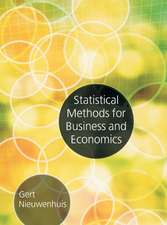Managing in a VUCA World
Editat de Oliver Mack, Anshuman Khare, Andreas Krämer, Thomas Burgartzen Limba Engleză Hardback – 30 iul 2015
| Toate formatele și edițiile | Preț | Express |
|---|---|---|
| Paperback (1) | 887.53 lei 38-44 zile | |
| Springer International Publishing – 15 oct 2016 | 887.53 lei 38-44 zile | |
| Hardback (1) | 1117.34 lei 3-5 săpt. | |
| Springer International Publishing – 30 iul 2015 | 1117.34 lei 3-5 săpt. |
Preț: 1117.34 lei
Preț vechi: 1362.61 lei
-18% Nou
213.83€ • 222.42$ • 176.53£
Carte disponibilă
Livrare economică 25 martie-08 aprilie
Specificații
ISBN-10: 3319168886
Pagini: 222
Ilustrații: XVIII, 259 p. 53 illus., 33 illus. in color.
Dimensiuni: 155 x 235 x 17 mm
Greutate: 0.69 kg
Ediția:1st ed. 2016
Editura: Springer International Publishing
Colecția Springer
Locul publicării:Cham, Switzerland
Public țintă
ResearchCuprins
The Phenomenon of VUCA and Complexity.- Perspectives on a VUCA World.- Simple More Complex: A System Approach to VUCA.- Leadership, Strategy and Planning.- Program Management in VUCA Environments: Theoretical and Pragmatical Thoughts on a Systemic Management of Projects and Programs.- Keeping the Flow: Creating Opportunities Based on Well Structured Collaboration.- Risk Management in a UVA World: Practical Guidelines Based on the Example of a Multinational Retail Group.- Marketing & Communication.- Measures to Understand and Control Customer Relationship and Loyalty.- Pricing in a VUCA World: How to Optimize Prices, if the Economic, Social and Legal Framework Changes Rapidly.- Corporate Communication in a VUCA Environment.- Operations and Cost Management.- Addressing Volatility, Uncertainty, Complexity and Ambiguity (VUCA) Through Insourcing and Backshoring.- A Framework for Operational Agility: How SMES Are Evaluating Their Supply Chain Integration.- Mittelstand and Decision-Oriented Controlling.- Sustaining Reductions in Aircraft Emissions for Canada's Major Airlines.- Organization and Culture.- Organizational Approaches to Answer a VUCA World.- Environment al Justice in a VUCA World.- IT, Technology and Data Management.- The Uncertainty of Information Systems: Cause or Effect of VUCA?.- Volatility, Uncertainty, Complexity and Ambiguity in Higher Education.
Notă biografică
Oliver Mack is Researcher, Entrepreneur, Coach and Consultant located in Salzburg and Vienna, Austria. He studied Business Administration and Law at the University of Mannheim and got his PhD in Political Science at Johannes-Gutenberg-University of Mainz, Germany. He is author of several publications and speaker at international conferences and meetings and he is academic teacher in international organizations. Mack is founder of mack:consulting, a consulting company helping companies and organizations in the “3rd mode of consulting”, combination of traditional top management consulting and systemic change consulting in the main areas of Project Orientation, New Organizational Design and Restructuring/Change. Oliver Mack is Network partner of osb international Vienna, a leading Systemic Consulting companies in Europe. He is also founder of the xm:institute, an organization doing applied research and application of “Ideas for Management & Leadership in the Next Society”. He is active in various associations, like Board Member at GLOBArt, a leading Austrian Think Tank for the Future Society.
Anshuman Khare is Professor in Operations Management at Athabasca University, Canada. He joined Athabasca University in January 2000. He is a MBA and PhD from Allahabad University, India. He is an Alexander von Humboldt Fellow and has completed two post-doctoral terms at Johannes Gutenberg Universität in Mainz, Germany. He is also a former Monbusho Scholar, having completed a postdoctoral assignment at Ryukoku University in Kyoto, Japan. He has published a number of books and research papers on a wide range of topics. His research focuses on environmental regulation impacts on industry, just-in-time manufacturing, supply chain management, sustainability, cities and climate change, etc. Anshuman serves on Athabasca University General Faculties Council representing Faculty of Business Faculty Council as a full-time academic faculty member. As his commitment to community Anshuman also serves on the Board of Directors of Northern Alberta Business Incubator (NABI) and is the Vice Chair of Smart Cities Masterplan Steering Committee for the City of St. Albert. He is on the Steering Committee of Alexander von Humboldt Cities and Climate Change Network of research scientists and on the executive of Humboldt Association of Canada. Anshuman has recently agreed to serve as Associate Editor of "International Journal of Sustainability in Higher Education" published by Emerald.
Andreas Krämer is Marketing and Strategy Consultant, living in Bonn, Germany, and Professor of Customer Value Management and Pricing at BiTS Business and Information Technology School, Iserlohn. He studied Agricultural Economics and earned his Ph.D. at the University of Bonn. After working for two strategy consultancies he founded his own consulting firm in 2000: exeo Strategic Consulting AG is focused on data-driven decision support in marketing - especially pricing and customer value management. He is author of several books and numerous publications and speaker at international conferences and meetings.
Thomas Burgartz is Professor of Business Administration and Performance Measurement at BiTS Business and Information Technology School, Iserlohn and dean of its faculty of economy. He received his diploma in business sciences at the Technical University of Dortmund and earned his Ph.D. in customer relationship controlling. He has published, presented, and consulted on marketing performance measurement, customer relationship management, strategic controlling and operations management.
Textul de pe ultima copertă
This book examines volatility, uncertainty, complexity and ambiguity (VUCA) and addresses the need for broader knowledge and application of new concepts and frameworks to deal with unpredictable and rapid changing situations. The premises of VUCA can shape all aspects of an organization. To cover all areas, the book is divided into six sections. Section 1 acts as an introduction to VUCA and complexity. It reviews ways to manage complexity, while providing examples for tools and approaches that can be applied. The main focus of Section 2 is on leadership, strategy and planning. The chapters in this section create new approaches to handle VUCA environments pertaining to these areas including using the Tetralemma logics, tools from systemic structural constellation (SySt) approach of psychotherapy and organizational development, to provide new ideas for the management of large strategic programs in organizations. Section 3 considers how marketing and sales are affected by VUCA, from social media’s influence to customer value management. Operations and cost management are highlighted in Section 4. This section covers VUCA challenges within global supply chains and decision-oriented controlling. In Section 5 organizational structure and process management are showcased, while Section 6 is dedicated to addressing the effects of VUCA in IT, technology and data management. The VUCA forces present businesses with the need to move from linear modes of thought to problem solving with synthetic and simultaneous thinking. This book should help to provide some starting points and ideas to deal with the next era. It should not be understood as the end of the road, but as the beginning of a journey exploring and developing new concepts for a new way of management.
Caracteristici
Showcases VUCA from different perspectives including marketing, information technology, and sustainability management
Offers approaches that can be applied to help managers cope with the increasing speed and complexity in their work
Descriere
This book examines volatility, uncertainty, complexity and ambiguity (VUCA) and addresses the need for broader knowledge and application of new concepts and frameworks to deal with unpredictable and rapid changing situations. The premises of VUCA can shape all aspects of an organization. To cover all areas, the book is divided into six sections. Section 1 acts as an introduction to VUCA and complexity. It reviews ways to manage complexity, while providing examples for tools and approaches that can be applied. The main focus of Section 2 is on leadership, strategy and planning. The chapters in this section create new approaches to handle VUCA environments pertaining to these areas including using the Tetralemma logics, tools from systemic structural constellation (SySt) approach of psychotherapy and organizational development, to provide new ideas for the management of large strategic programs in organizations. Section 3 considers how marketing and sales are affected by VUCA, from social media’s influence to customer value management. Operations and cost management are highlighted in Section 4. This section covers VUCA challenges within global supply chains and decision-oriented controlling. In Section 5 organizational structure and process management are showcased, while Section 6 is dedicated to addressing the effects of VUCA in IT, technology and data management. The VUCA forces present businesses with the need to move from linear modes of thought to problem solving with synthetic and simultaneous thinking. This book should help to provide some starting points and ideas to deal with the next era. It should not be understood as the end of the road, but as the beginning of a journey exploring and developing new concepts for a new way of management.











